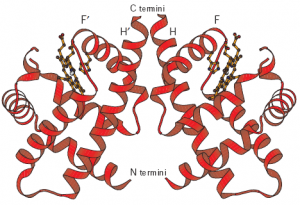A new report released this week by the Competitive Enterprise Institute (CEI) is arguing that the Renewable Fuel Standard (RFS) should be repealed for its “numerous economic, ethical and real-world problems”. “Running Drivers into the Blend Wall: Push to Ratchet up Renewable Fuel Standard Rewards Ethanol Lobby at Consumers’ Expense,” argues the RFS rewards the ethanol industry at consumers expense. Dozens of organizations would not agree with this assessment as less than two weeks ago a coalition of more than 40 diverse organizations sent a letter to Congress calling for an end to the more than 100 years of oil subsidies that reach into the billions of dollars each year.
In response to the report, Bob Dinneen, president and CEO of the Renewable Fuels Association said:
 “CEI is a member of the API’s Smarter Fuel Future. All CEI is doing is regurgitating API’s talking points and its misinformation. For starters, ethanol and the RFS help to lower consumer gasoline prices, not drive them up. Numerous independent analyses have concluded that because ethanol is the lowest cost source of clean octane and is displacing higher priced dirty gasoline from tar sands and fracking, the RFS is saving consumers at the pump.
“CEI is a member of the API’s Smarter Fuel Future. All CEI is doing is regurgitating API’s talking points and its misinformation. For starters, ethanol and the RFS help to lower consumer gasoline prices, not drive them up. Numerous independent analyses have concluded that because ethanol is the lowest cost source of clean octane and is displacing higher priced dirty gasoline from tar sands and fracking, the RFS is saving consumers at the pump.
And the RFS is not mandating the use of E15 or E85. The RFA has demonstrated just how easy it would be for obligated parties to reach the 15 billion gallon statutory volume for conventional biofuels next year—through rising gasoline demand, increased E15 and E85 use by consumers choosing to utilize those blends. Better than 80% of the cars sold this year are E15 compatible, and there are more than 20 million flexible fuel vehicles on the road today capable of using E85.
By contrast, less than 12% of today’s autos require premium gasoline. The oil companies, though, have made the investment to supply the premium market. Why won’t they do so for an even larger share of the vehicle fleet that could use higher ethanol blends? The only reason is that they would prefer to maintain their monopoly over the gasoline market. That’s precisely the reason the RFS is necessary in the first place.
In CEI’s misleading, inaccurate and repetitive brief, it tries to attack the ethanol industry on issues such as the ethanol blendwall, RINs and biofuel infrastructure. However, the only thing that is ‘flimflam’ is CEI’s claims. Our industry has in fact invested and expanded biofuel retail infrastructure–more than $200 million will be invested in the next year–and despite what CEI claims, Big Oil does control what service stations sell, limiting what fuels can be offered under their canopy.
It’s ironic that CEI, whose core principles include limited government and free enterprise, is pushing for repeal or reform of the RFS, when the alternative is the continued near-monopoly of Big Oil. The RFS is all about loosening petroleum’s grip on the transportation sector and providing an alternative that is cleaner, domestically produced and boosts rural economies. Why wouldn’t CEI—or anyone—support that effort?”
 Using research on photobioreactors as the basis, the team used a “Porous Substrate Bioreactor” (PSBR), also known as the twin-layer system, to separate algae from a nutrient solution by means of a porous reactor surface on which the microalgae are trapped in biofilms. What is different is their procedure is that it reduces the amount of liquid needed in comparison to the current technology, which cultivates algae in suspensions, by a factor of up to one hundred. The PSBR procedure thus allows for a significant reduction in energy and for an increase in the portfolio of algae that can be cultivated.
Using research on photobioreactors as the basis, the team used a “Porous Substrate Bioreactor” (PSBR), also known as the twin-layer system, to separate algae from a nutrient solution by means of a porous reactor surface on which the microalgae are trapped in biofilms. What is different is their procedure is that it reduces the amount of liquid needed in comparison to the current technology, which cultivates algae in suspensions, by a factor of up to one hundred. The PSBR procedure thus allows for a significant reduction in energy and for an increase in the portfolio of algae that can be cultivated.







